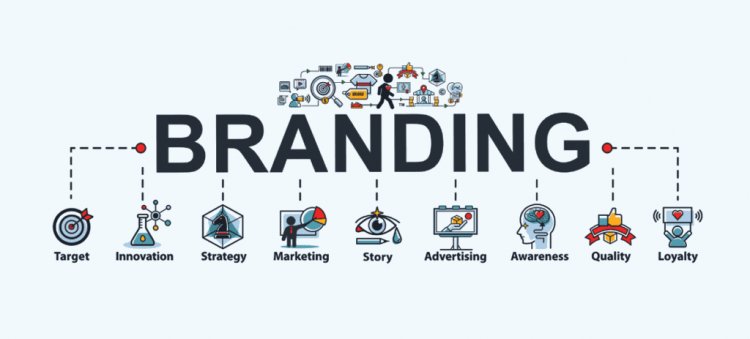Think Emotional Branding
Michael Randazzo, Author, Tales of an American Entrepreneur: Journey of a Small-Business Owner

Whether you are a nascent entrepreneur or a seasoned CEO, many challenges are rooted in the same word: acquiring. Entrepreneurs ask themselves: “How do I acquire more customers, quality employees, or a better bottom line?” I cannot address these conundrums now but experience suggests one way businesses can maximize these “acquisitions” while compressing expenses involve Branding. Establishing your brand does not have to be a toilsome task but does require maintenance.
Whether opening a first business or running an icon like Apple, effective entrepreneurs should develop and routinely nourish their brand. Branding for global companies is key but make no mistake, branding is just as imperative for small businesses.
Owners should look beyond the product or services offered and interpret how their business uniquely fits customer’s lives on a continuing basis. Just how does the customer identify with a business and importantly, why is a business worthy of patronage?
On some levels it involves emotions. Several friends own pizza shops and say “we just sell pizza”! In doing so, they may not be thinking beyond their own doors and miss the bigger picture of how their pies, calzones and other products fit their customer’s lifestyle. They probably haven’t put a great deal of thought to their brand.
I lunch at the same restaurants several times a week. The owners or wait staff become friends as I satisfy that most basic need, sustenance. I have an emotional attachment that the owners many not realize or capitalize upon. In a sense, I have affixed my own personal branding upon them that distinguishes them as the “family” restaurant differing from the chain down the street.
Nationally, Chic Fil A employees consistently say “it’s my pleasure” when they take an order or serve you as opposed to having no eye contact and shoving a tray in your direction while chatting with coworkers. This common courtesy is distinctive, notable, and supports their brand. In addition to the delicious chicken, they are known as a civilized, family friendly place to dine. Such things have a latent emotional impact. It supports and essentially becomes a part of their brand.
Think of the people you know and how it is that you interact with them. It is this personalized engagement that makes a brand emotionally powerful. Industry giants know this and capitalize upon this predilection. Many of Harley Davidson’s customers have such a strong personal affinity for the brand that they tattoo it on their bodies.
Do people patronize Starbucks for the expensive coffee or something beyond the product? At the corporate level they have perfected the art of defining their brand and taking it to a lifestyle choice. This commitment to a unique identity follows that chain down to every barista pulling an espresso or steaming a latte.
Like Starbucks, ensure your business lives your brand. First define your brand. Know who you are and what you want to be. Then develop a strategy of how to implement, compliment and ensure that brand is supported. Like Starbucks and Chick Fil A, train your employees to “be the brand.” Teach them verbiage, actions and behaviors that reflect your brand, even simple ones.
As the owner of a locally and nationally recognized Salon/Spa whose brand is synonymous with quality, consistency and “Harmony,” My business has received a number of awards. I suggest these accolades and more importantly, our growth and success would not be possible without distinctive and well-supported emotional branding.
The Salon business is extremely competitive and labor intensive. Competition for both customers and employees is fierce. At Harmony Salon, we continuously work to evolve and support our brand. Brand preference builds customer acquisition and a reputation that serves to attract and retain quality employees.
The most valuable source of acquiring customers in my business is referrals. Customers instinctively share with friends their preference in beauty care and personal grooming. Relationships people have with their stylist can be personal. Customers often share stories that are deeply intimate; an emotional bonding.
Branding can have an enduring effect. Our brand focuses on unsurpassed service, topnotch products, and a customer experience that precedes potential new employees and endures after they leave. The fact remains that employees build relationships with clients and for myriad reasons employees may not stay long term. Our strong brand has consistently placed the odds in favor of customers returning to our salon, e.g. “their salon,” rather than following the employee. A brand-focused approach has been crucial to our growth and acquisition. It can be for yours also.
About the Author
Recognized as one of the top two hundred fastest growing salons in North America Michael Randazzo’s Harmony Salon has also been awarded one of Charlotte, North Carolina’s top fifty fastest growing privately held companies. Randazzo’s new book written as part memoir part how to guide Tales of an American Entrepreneur Journey of a Small-Business owner discusses many trials and tribulations that relate directly to small- business owners.

















